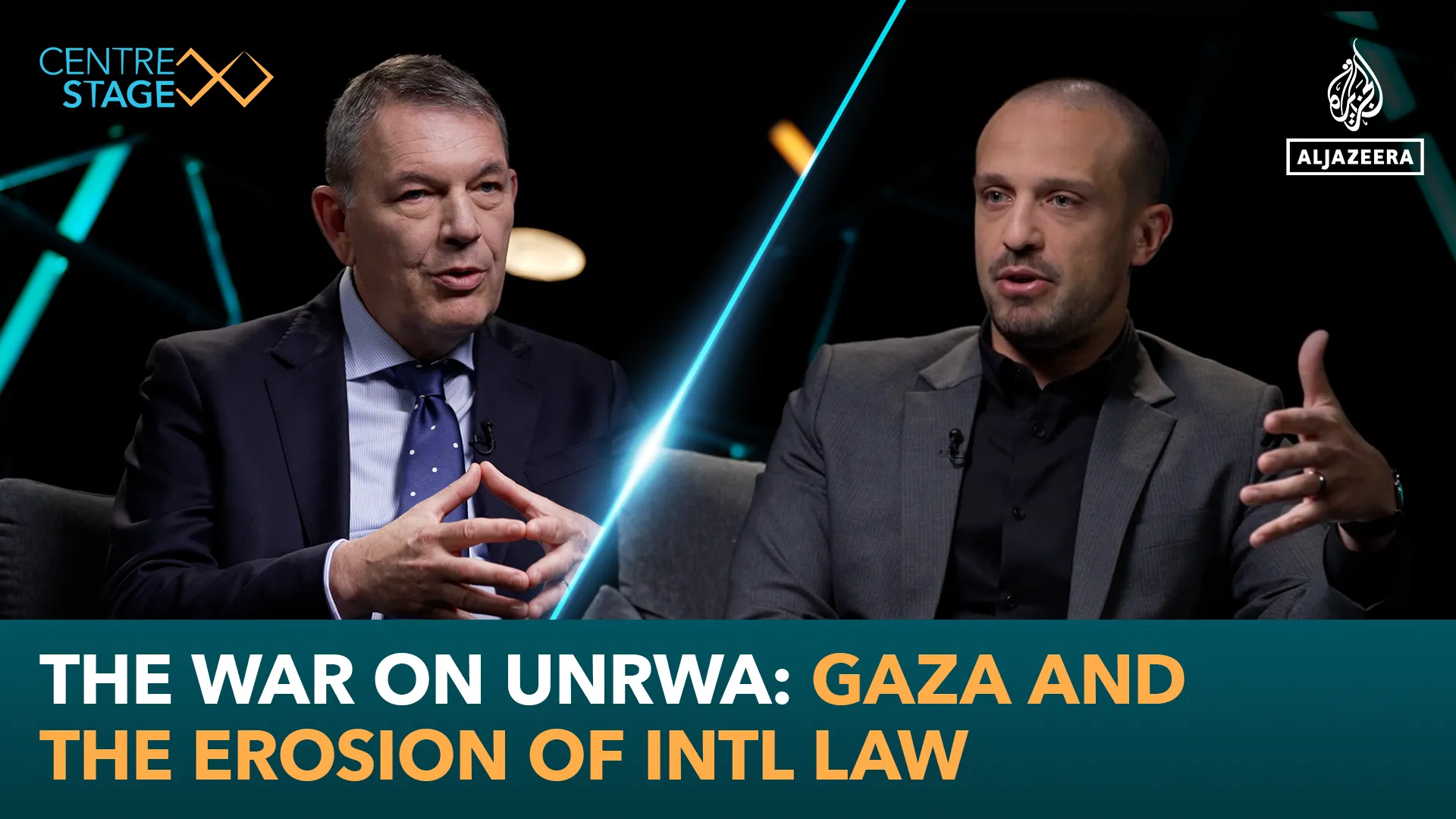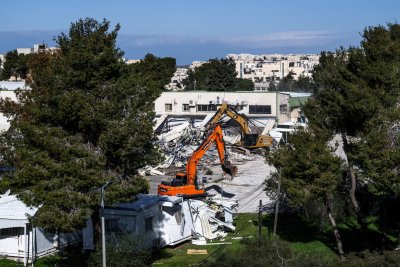Israel demolishes the headquarter of the United Nations Relief and Works Agency in the East Jerusalem neighborhood of Sheikh Jarrah on January 20, 2026. On Wednesday, 11 countries condemned Israel for the move. File Photo by Atef Safadi/EPA
Jan. 29 (UPI) — Britain, Canada, France and eight other allies on Wednesday “strongly condemned” Israel’s demolition of the United Nations’ Palestinian relief agency building in occupied Palestinian territory, saying it represents the latest “unacceptable move” by the Middle Eastern nation to undermine the U.N.’s ability to operate.
The joint statement from the foreign ministries of Belgium, Britain, Canada, Denmark, France, Iceland, Ireland, Japan, Norway, Portugal and Spain described Israel’s demolition of UNRWA’s East Jerusalem building as “an unprecedented act against a United Nations agency by a U.N. member state.”
“We urge the Government of Israel to abide by its international obligations to ensure the protection and inviolability of United Nations premises in accordance with the provisions of the U.N. General Convention (1946) and the Charter,” the 11 nations said.
“We call upon the Government of Israel, a member of the United Nations, to halt all demolitions.”
The West Bank and East Jerusalem are widely regarded as Israeli-occupied Palestinian territory, and Israeli actions, including the establishment of settlements and the demolition of Palestinian buildings, are widely regarded as illegal under international law.
Israel has long been a vocal critic of UNRWA, alleging it has ties with Hamas, allegations that only intensified after the Iran-backed militant group’s bloody surprise attack on Israel on Oct. 7, 2023.
The Knesset, Israel’s parliament, passed laws in the fall of 2024 to ban the agency from operating in land under its control, with the ban going into effect in January 2025.
Last week, Israel demolished UNRWA’s East Jerusalem building.
“UNRWA is a service provider delivering healthcare and education to millions of Palestinians across the region, particularly in Gaza, and must be able to operate without restrictions,” the 11 nations said Wednesday.
The nations also called on Israel to abide by its obligations to facilitate the delivery of humanitarian aid to Gaza.
“Despite the increase in aid entering Gaza, conditions remain dire and supply is inadequate for the needs of the population,” they said.
On Tuesday, UNRWA Commissioner-General Philippe Lazzarini said that not only had Israel “stormed & demolished” its headquarters, but it was now set on fire.
“Allowing this unprecedented destruction is the latest attack on the U.N. in the ongoing attempt to dismantle the status of Palestine refugees in the occupied Palestinian Territory & erase their history,” Lazzarini said on X.
“Refugee status must be resolved through a genuine political solution, not criminal acts.”
Israel has killed more than 71,600 Palestinians and damaging more than 80% of all of the region’s structures in its war against Hamas in Gaza.
According to the Palestinian Ministry of Health, Israel has killed 492 Palestinians since the fragile cease-fire was announced in October.
Israel has been accused of committing genocide against the Palestinian people in Gaza by a number of nations, international organizations and human rights groups, and the International Criminal Court has issued arrest warrants for Israel’s prime minister, Benjamin Netanyahu, and its former defense minister, Yoav Gallant, on war crimes and crimes against humanity charges.
Israel has denied the accusations.


